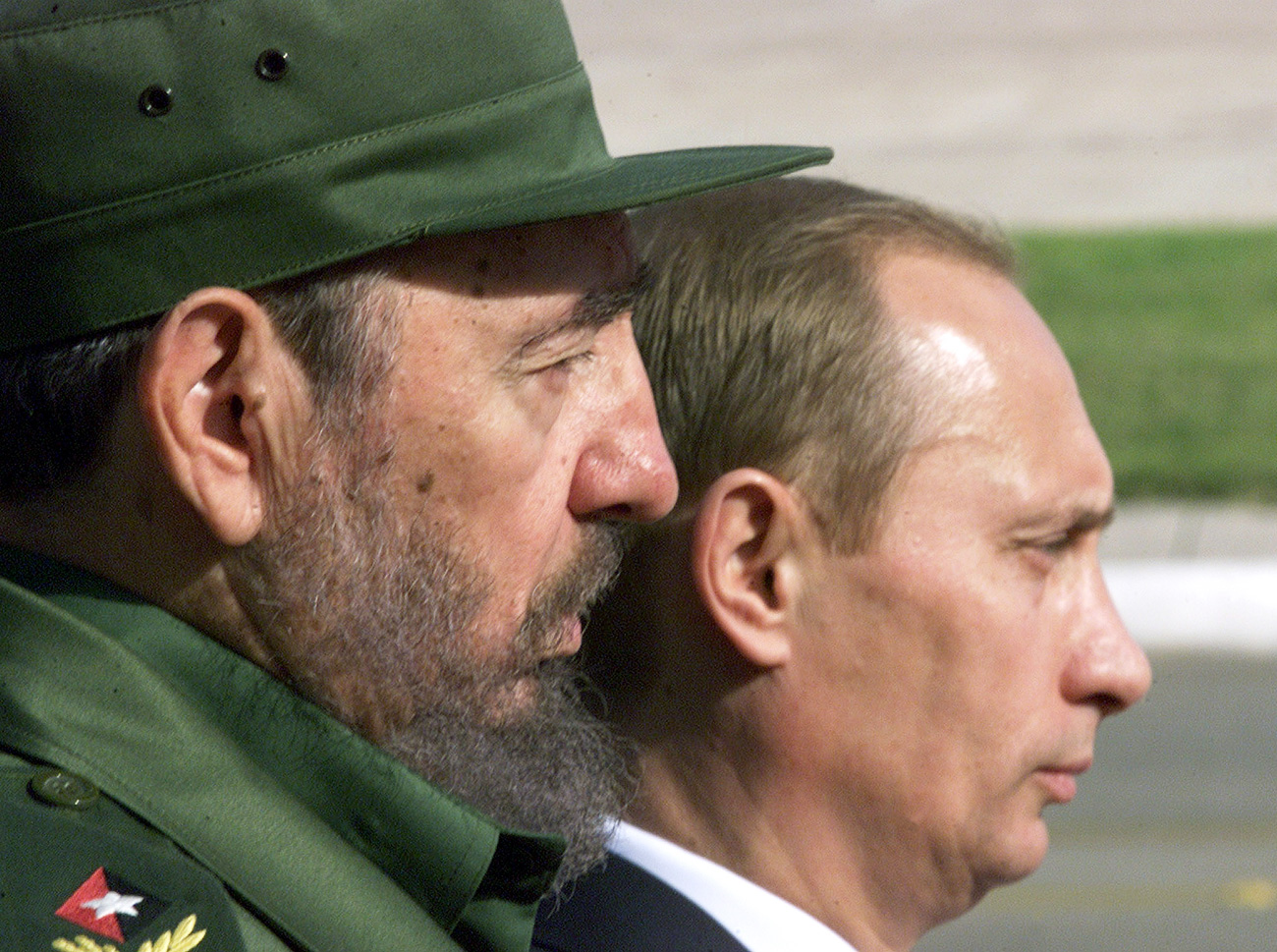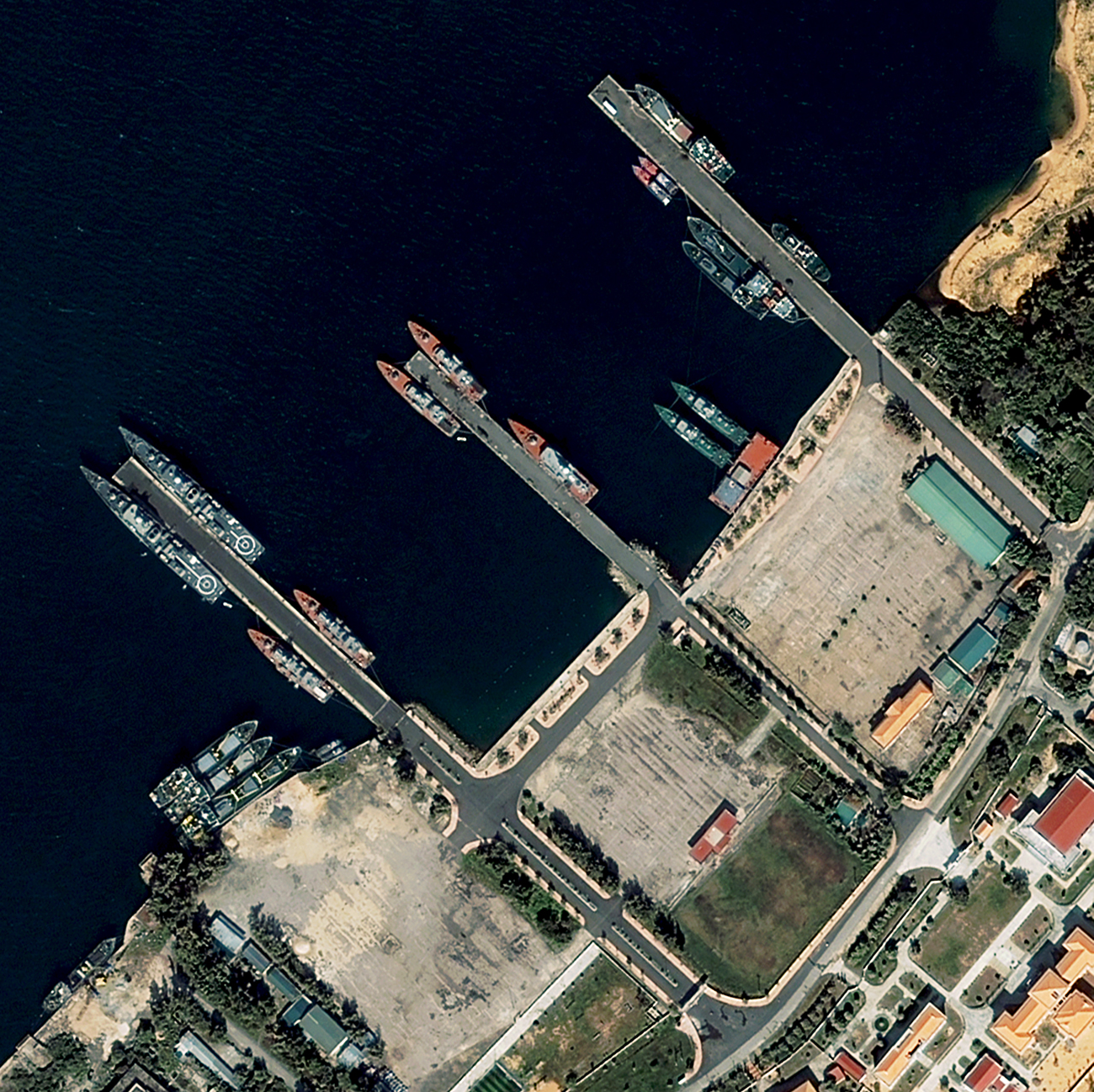Russia responds to the death of Fidel Castro

Russian President Vladimir Putin (R) and Cuban leader Fidel Castro stand side by side by during Putin's official welcoming ceremony outside Havana's Palace of the Revolution in December 2000.
ReutersFidel Castro, the leader of Cuba’s Communist revolution and one of the most notable figures of the 20th century, has died at the age of 90. His death was announced by Cuban state television.
Castro swept into power in January 1959 and ruled his island nation until 2006, when he stepped aside in favor of his brother Raul.
Castro, who throughout his life promised that Cuba would “never stop fighting for peace and prosperity for all people,” remained an idol of left-wing politicians and revolutionaries until his last days.In Russia, which always maintained warm relations with Cuba under Castro’s rule, the news of his death was met with sadness by many. Flowers in his memory were piled outside the residence of the Cuban ambassador in Moscow.
President Vladimir Putin described Fidel Castro as “a symbol of a whole era in modern history.”
“The free and independent Cuba that he and his associates built has become an influential member of the international community and has served an inspiring example for many countries and nations,” Putin said in a telegram addressed to the people and government of Cuba.
Russian leaders respond
Other Russian political figures also expressed their sympathy at Castro’s death.
“Castro was one of the Greats, those who have changed the world,” tweeted Alexei Pushkov, the former head of the State Duma’s International Affairs Committee.
In a later tweet, he added: “Castro has proven that you can spend 55 years being a target of pressure and economic war from the USA and stand up to it. And now the head of the USA is going to Havana, and not the other way round.”The head of Russia’s Communist Party, Gennady Zyuganov, called the Cuban revolutionary a moral authority for humanity.
“One of the political titans has died, a statesman, a person who has laid the foundations of ethical politics, politics that primarily concerned themselves with the fate of an ordinary man, with a decent life for working people and with a happy world,” Zyuganov said in a statement.
Fidel Castro’s “profound mark on history of the whole humankind” was also noted by Mikhail Gorbachev, the first and last president of the Soviet Union.
Zhirinovsky predicted, “in five to 10 years, Cuba will enter the normal mode of a mid-range country, same as the majority of Latin American countries.”
Gorbachev pointed out Castro’s ability to hold fast to his ideals, even during “the toughest American blockade, in the time of colossal pressure on him, and still he led his country out of that blockade on a path of sovereign, independent development.”
Writing on Facebook, Russian Prime Minister Dmitry Medvedev recalled how he had spoken with Castro on the phone when he was celebrating his 90th birthday in August.
“He took a keen interest in what was happening in the world, in Russia. To the very last moment, he maintained an acute mind and kept a lot of information in his head,” Medvedev wrote.
In comments to Gazeta.ru, Vladimir Zhirinovsky, the leader of the Liberal Democratic Party of Russia, described Castro as “an example of fortitude and courage,” adding that the years that Cuba spent under his leadership “will remain remarkable.”
At the same time, Zhirinovsky predicted, “in five to 10 years, Cuba will enter the normal mode of a mid-range country, same as the majority of Latin American countries.”
A divisive figure
Opposition figures and bloggers as well as some experts expressed different views from those of the establishment politicians.
"I am convinced that panegyrics to Castro are now coming from those who have never been to Cuba. Whereas I have. Main impressions: POVERTY, RUIN, EMBEZZLEMENT," opposition leader Alexei Navalny wrote on Twitter.Another opposition figure, Vladimir Milov, compared Cuba’s GDP per capita ($7,000) with the GDP of neighboring Puerto Rico ($29,000). "They started off from the same level. So much for your Castro.”
In October, prominent blogger Ilya Varlamov wrote about Cuba: “Castro ruined his own country, he brought down a once-rich region to the state of the poorest African nations. Medicines and foodstuffs are still in short supply here. There is no normal mobile signal or Internet here. People are working for peanuts and the only joy is to steal something.”
A remembrance of Castro published by Russian daily Kommersant noted that Castro would forever be a divisive figure.
People “will always argue about whom Fidel Castro became ‘a bloody dictator' or 'a great fighter against American imperialism' — just as they now argue about Joseph Stalin or Ivan the Terrible," the story reads in part.
Castro’s main legacy, according to Latin American scholar Viktor Kheyfets, is the creation of “a model of an independent and sovereign foreign policy of Cuba,” adding that his other legacy – an authoritarian political regime – is something that not many of his supporters would be proud of.
The article also references Castro’s claim in 1953 while on trial for the raid on the Moncada Barracks that “history will absolve me.”
“That phrase became a famous quotation, but decades later, it is clear that there will be no absolution and that bitter arguments between ‘castristas’ and ‘anticastristas’ will not end even when Cuba becomes a typical (or almost typical) Caribbean country,” the Kommersant story concluded.
Castro’s main legacy, according to Latin American scholar Viktor Kheyfets, is the creation of “a model of an independent and sovereign foreign policy of Cuba,” adding that his other legacy – an authoritarian political regime – is something that not many of his supporters would be proud of.
“The Cuban economy has remained monocultural: no matter how hard the authorities tried, they have failed to overcome it. Indeed, Cuba has managed to survive. But it is unlikely that such was its goal,” Kheyfets said in comments to Kommersant.
All rights reserved by Rossiyskaya Gazeta.
Subscribe
to our newsletter!
Get the week's best stories straight to your inbox


